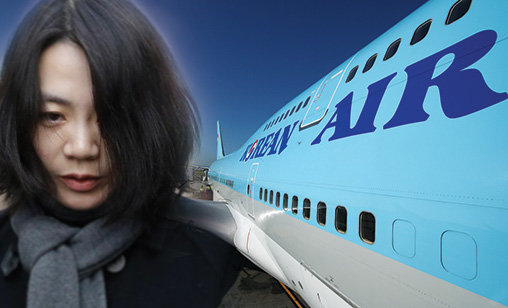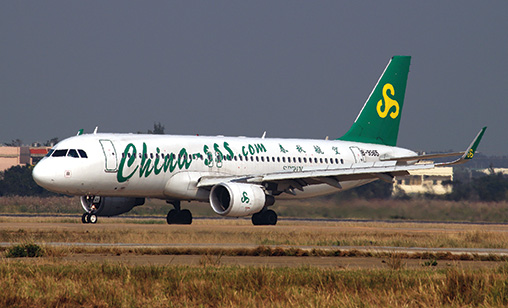News Backgrounder
China blacklists badly behaviouring passengers
An increasing number of unruly passenger incidents at the region’s airlines have persuaded two Asia-Pacific governments to introduce tougher measures to combat air rage. While welcoming the initiatives, the world’s airline association said enforcement of a global protocol to punish disruptive travelers should be the ultimate goal.
March 1st 2016
The New Year brought bad news in two Asian countries for disruptive airline passengers. China, one of the world’s unruly passenger hot spots, is creating a passenger black list that will see anyone causing trouble aboard commercial aircraft banned from travelling. Read More » And in South Korea, the government has massively increased penalties for misbehavior on aircraft.
It is good news for the industry, said the International Air Transport Association (IATA). “The actions taken by South Korea and China will help send a strong signal that unruly behavior will not be tolerated by the respective states,” IATA’s assistant director for external affairs, Tim Colehan, told Orient Aviation.
 |
| Korean Air heiress, Cho Hyun-ah: Her tantrum over mis-served nuts in the airline’s first class cabin has resulted in tougher penalties in South Korea for disruptive passengers |
“However, as an industry, we think the best way to deal with unruly behavior onboard is the enhancement of the international legal deterrent, specifically the Montreal Protocol 2014 (MP14).”
The protocol was adopted by the International Civil Aviation Organization (ICAO) at a Diplomatic Conference in early 2014 when governments agreed to strengthen Tokyo Convention 1963. It provides a more effective deterrent to unruly behavior by extending the legal jurisdiction for such events to the territory in which the aircraft lands.
Legal jurisdiction has been a grey area in penalizing unruly passenger behavior because incidents occur on aircraft that are registered in one country but land in another. As a result, it is not clear who is responsible for taking action against the offending passenger and they frequently walk free on landing.
Colehan said MP14 will ensure states have the necessary legal powers to deal with unruly passengers, even if these incidents take place on foreign registered aircraft that land in the offending passenger’s territory.
While China and South Korea have toughened their stances against unruly sky-high behavior, neither country has ratified MP14. “We urge China and South Korea to make the ratification of MP14 a priority,” he said.
China’s new regulation will blacklist passengers who threaten or assault airport staff and cabin crew. Introduced by the China Air Transport Association (CATA) January, the misconduct that will result in blacklisting includes in blocking and attacking check-in counters, security check passages and boarding gates, fighting inside the airport or on board the aircraft, attempting to force entry to the cockpit or to open an aircraft’s emergency exits without instruction and spreading false information about terrorist attacks.
CATA will record the personal information of disruptive passengers and share it with airlines and state-owned TravelSky, China’s national electronic travel distribution system. Inclusion on the blacklist will be kept on record for one to two years, CATA said.
China’s biggest airlines - Air China, China Eastern Airlines, China Southern Airlines,Hainan Airlines and Spring Airlines – also have agreed to share the names of passengers who misbehave and to ban them from their flights.
“We have come up with our own list already,” Zhang Wuan, Spring Airline’s marketing chief told local media. “It includes (the names of) those who beat up our staff, refuse to get on the plane or block the exit.”
In Korea, a revised aviation safety law that has imposed tougher penalties on people who obstruct or harass flight crew came into effect in January. The bill was proposed by Saenuri Party lawmaker, Ha Tae-keung, of the National Assembly’s Land and Transportation Committee. It followed the nut-rage scandal in late 2014, in which Korean Air heiress, Cho Hyun-ah, threw a violent tantrum onboard because she had been incorrectly served nuts in a packet and not a bowl in first class.
 |
Under the new law, anyone obstructing or harassing pilots or other flight crew is liable to be jailed for up to five years or be fined up to 50 million won (US$41,255). The previous maximum fine was five million won.
Intoxicated passengers who injure other passengers face fines of up to 10 million won, an increase of 100%. The number of reported air rage incidents involving Korean airlines and passengers increased from 203 in 2013 to 369 last year.
At its annual general meeting in Doha in 2014, IATA unanimously adopted a resolution which called on governments and the industry to produce a balanced package of measures to deter and manage the significant problem of unruly air passenger behavior.
Such behavior includes committing physical assault, disturbing good order on board or failing to follow lawful crew instructions. At the time, IATA director general and CEO, TonyTyler, said the resolution confirmed the determination of airlines to defend the rights of their passengers and crew.
“Everybody on board is entitled to enjoy a journey free from abusive or other unacceptable behavior. Many airlines have trained both ground staff and cabin crew in procedures not only to manage incidents of unruly behavior, but also in measures to prevent them. But a robust solution needs alignment among airlines, airports and governments,” he said.
The definition of unruly behavior is broad. It includes non-compliance with crew instructions, consumption of illegal narcotics, sexual harassment and physical or verbal confrontation or threats. The number of incidents being reported annually is understood to be around the 10,000, but a majority of offenders are not charged. They escape with little more than a verbal warning.